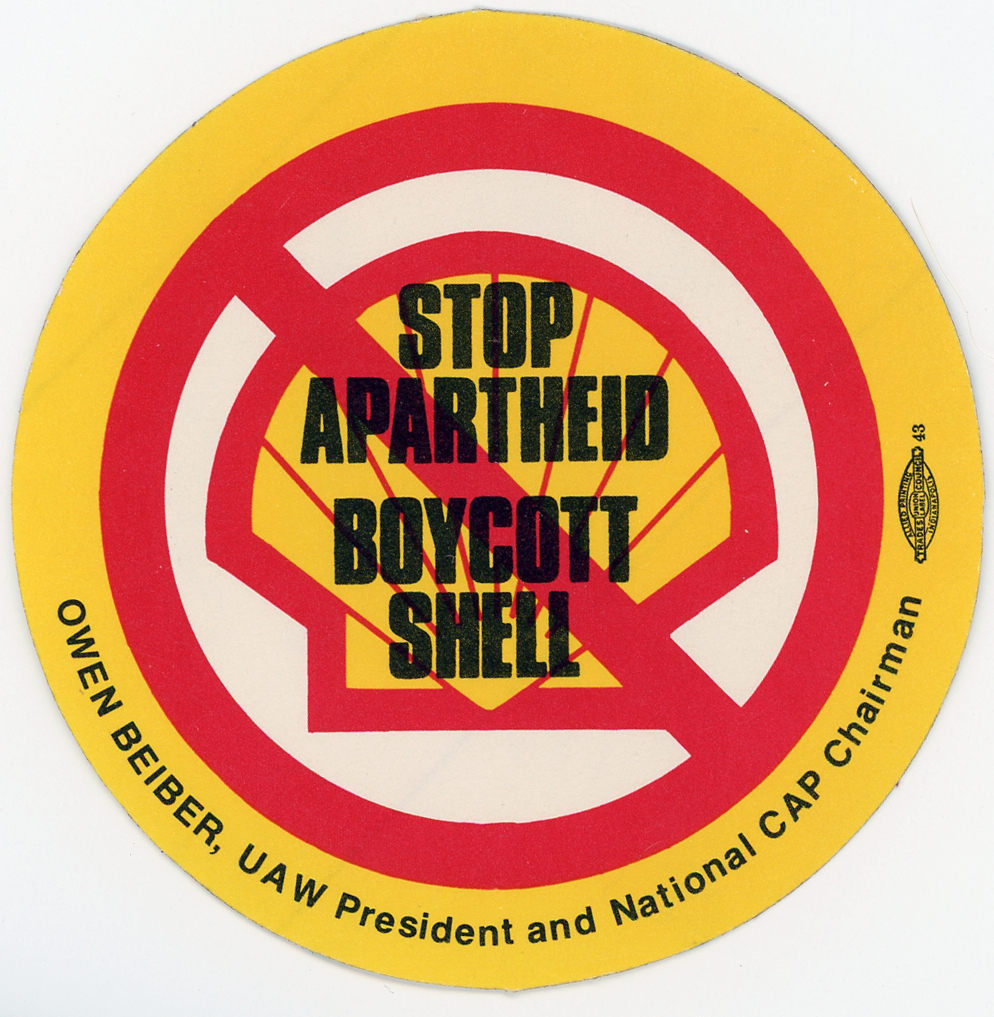My friend Amy Hauber at SLU is helping with the graphic design for the Re-Writing the Streets exhibition zine. Here is what she did with the photograph from my previous post for the page spread on U.S. historical political stickers. We hope to send this puppy to the printer in the upcoming week!
Republican Stickerkitty
- Published
- 1 Comment on Republican Stickerkitty
One of my ancestors.
New sticker zine
I’m making a sticker zine for the Re-Writing the Streets traveling exhibition. I used to make a lot of zines with students when I taught bookbinding and a course on artists’ books. Back then we used old-fashioned copier machines, scissors, and glue sticks. Now I’m using Photoshop software and trying to learn a little InDesign, and it’s a lot more complicated. It will look good when it’s done, though. A friend of mine at school is helping with graphic design, too, thankfully. Of the over 800 stickers in the show, I’ve selected about 250 for a 28-page zine. I’ll probably…
New stickers from Spain for digital archive and writing assignment
I haven’t had much time to post on Stickerkitty lately, but it doesn’t mean I haven’t been keeping busy with other things. I heard recently from SLU professor of modern languages, Marina Llorenta, that she’d like to repeat the assignment we created in 2012 to have her students conduct research on political stickers from Spain for her course on “Literature, Film, and Popular Culture in Contemporary Spain,” a project that later turned into an SLU art gallery exhibition called Pegatinas Políticas, which you can read about here. To prepare for the upcoming assignment this fall 2014 semester, I have been…
Mysterious directional stickers in Berlin
Yesterday while biking around Prenzlauer Berg and heading toward Wedding, I came across another rash of mysterious directional stickers on sign poles along Eberswalderstraße. This was after finding directional stickers last spring further south along Stresemannstraße and turning onto Zimmerstraße. The stickers are typically orange (or faded orange) with an arrow or arrows pointing straight ahead or turning left or right. A couple of times, there would be a blue triangle nearby pointing in the same direction, as if the streets are telling us something. I also found two orange arrows last year by Marianneplatz on Bethaniendamm. On all three…
Arab Spring stickers
This semester, I asked one of my students, Rebecca Clayman ’17, to do research and write descriptions for a series of four Egyptian stickers from the Arab Spring protests for the Street Art Graphics digital archive (scroll down and click on “Egypt”). Since neither of us reads or speaks Arabic, Rebecca interviewed Gisele El Khoury, the director of St. Lawrence University’s Language Resource Center and Arabic professor. Dating from the beginning of the uprisings in 2011, the stickers are in bright bold colors: blue (“electoral process”), purple (“freedom”), green (“democracy”), and red (“social justice”). Gisele provided the Arabic script and…
“The People’s Archive” instructional notes
Below are the notes I sent to the Weaving the Streets & People’s Archives team members today, focusing on the People’s Archive component of the project. “The struggle of man against power is the struggle of memory against forgetting.” – Milan Kundera, The Book of Laughter and Forgetting “The archivist, even more than the historian and the political scientist, tends to be scrupulous about his neutrality, and to see his job as a technical job, free from the nasty world of political interest: a job of collecting, sorting, preserving, making available, the records of the society. But I will stick…
“Forward to Recovery” sticker
I recently found a great political sticker about capitalism and the economy that looks very much like an I.W.W. stickerette due to its size, medium, and message. It states “Forward to Recovery – Increased Activity – Price Rise – Employment.” We see “Business” dressed as a fat cat in a fancy suit and pinstripe pants racing forward while being dragged down by the heavy anchor of “Low Wages.” The artist’s name is difficult to decipher; the signature looks like “Terry Costello,” but I can’t find anything similar online or in any of my I.W.W.-related books and articles. The reason I…

Nelson Mandela and anti-apartheid stickers
Two stickers in my collection focus on Nelson Mandela and anti-apartheid in South Africa. The first states “Stop Apartheid, Boycott Shell – Owen Bieber, UAW President and National CAP Chairman,” and the date 1985 is penciled on the back. Owen Bieber was then President of the American United Auto Workers Union and a strong Mandela supporter. In 1984, Bieber was even arrested in an anti-apartheid demonstration in DC. An article entitled “Campaign to Boycott Shell” in the United States Anti-Apartheid Newsletter (Vol. 1, No. 3, Spring 1986) describes Bieber’s role in the campaign and the call for “Shell and other…
Weaving the Streets & People’s Archive – December 2013
Our first Weaving the Streets & People’s Archive press release. Introduction Weaving the Streets & People’s Archive (WSPA) is a multi-faceted, interdisciplinary collaborative project that offers St. Lawrence University students, alumni, and others the opportunity to be part of a dynamic, global, investigative blog and a digital archive that document the creative range of ways in which ordinary people make use of public space to express themselves. The goal is to bring together examples from a wide range of cultures and experiences so that people can build bridges, explore lines of solidarity and difference, and learn from the experiences of…